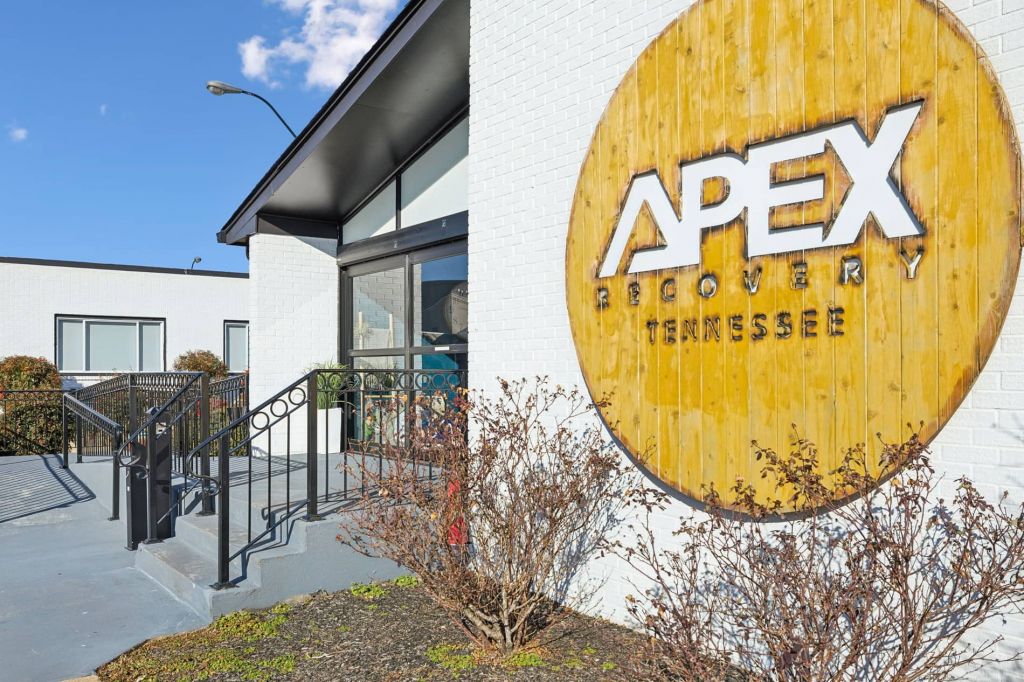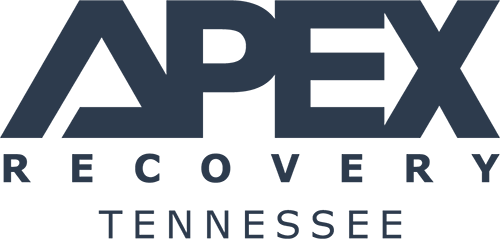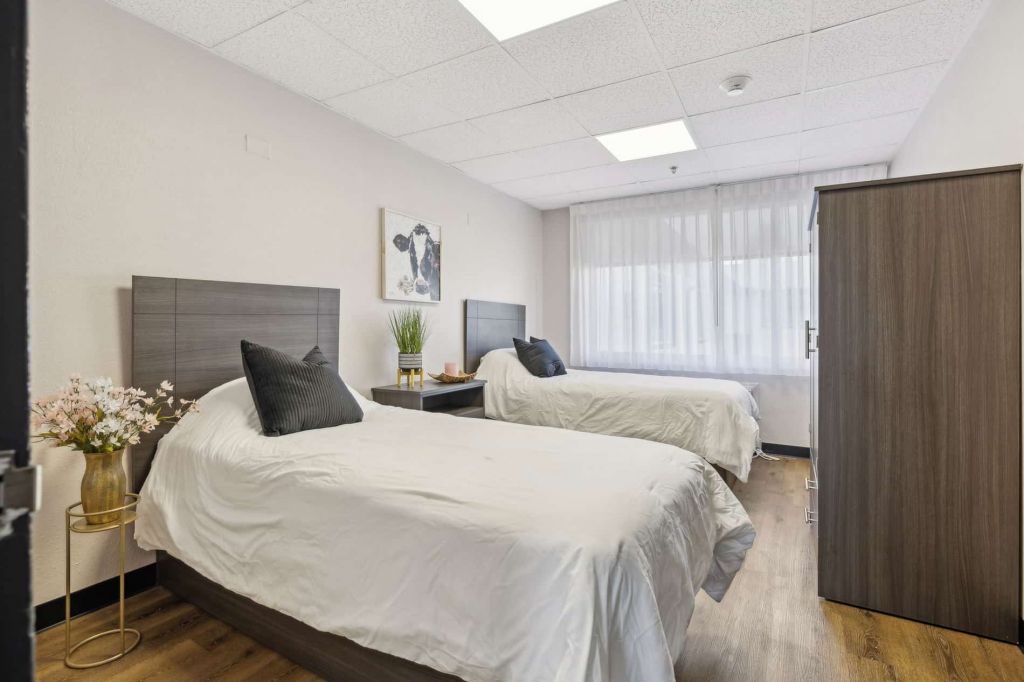Apex Recovery stands out as a leading provider for substance misuse and addiction treatment, offering thorough support tailored to your needs. With two behavioral health facilities in Tennessee, Apex Recovery is accessible to people from Nashville, Memphis, Knoxville, and beyond. We accept health insurance from most major providers, including Aetna, Ambetter, Cigna, Blue Cross Blue Shield, United Healthcare, and more. For those without insurance, private pay options are also available. Apex Recovery focuses on drug and alcohol addiction treatment, aftercare services, transitional living, and sober living homes. Our licensed and accredited rehab facilities provide long-term residential rehab, 24/7 support from experienced professionals, and a clean, welcoming environment. The holistic, evidence-based approach allows every individual to receive the care they deserve, including customized treatment plans designed to suit their personal goals and timelines.
If you’re interested about the cost of sober living programs and want to explore what luxury rehab at Apex Recovery includes, we advise you to call us today on (877) 881 2689 to discuss your options. Understanding the costs and the benefits can be a necessary step toward reclaiming control of your life – there is no shame in seeking support; it takes incredible strength to take this step toward healing.
What is Recovery Housing (Transitional Living)?
Recovery housing, sometimes referred to as transitional living, offers people a structured and supportive environment as they move from formal rehabilitation programs to independent living. Recovery homes provide an important bridge for those in recovery, helping them maintain sobriety while gradually adapting to everyday life. Recovery housing often features shared living spaces where residents can connect with peers who share similar experiences, giving a sense of community and mutual support. Typical transitional living programs include accountability measures, such as regular drug screenings and house meetings, to allow for a safe and drug-free environment.
Recovery housing programs often include access to crucial resources that empower people to build a strong foundation for their future. From one-on-one counseling and group therapy to assistance with finding jobs or pursuing education, such services address the emotional, social, and practical aspects of recovery. Transitional living is not just about maintaining sobriety; it’s about developing the skills and resilience needed to achieve long-term independence and success in a supported, nurturing setting.

Supported Housing and Sober Living homes in Tennessee
Across Tennessee, various supported housing and sober living homes provide options for people in recovery. Some rehab centers in Tennessee accept health insurance, allowing families to offset costs, while others offer flexible private pay solutions. Sober living services are available in cities like Nashville, Memphis, Knoxville, Chattanooga, Clarksville, Murfreesboro, Franklin, and Johnson City, providing accessible care statewide.
At Apex Recovery, we help make treatment accessible by accepting insurance plans and providing private pay options tailored to personal needs. Our experienced team is readily available to guide you through your options and help you select a plan that supports your path to recovery.
What’s Included in the Cost of Sober Living Homes?
Sober living homes provide a wide range of services and resources to support people in their drug or alcohol addiction recovery journeys. Some service offers often go beyond just accommodation, incorporating various programs and amenities designed to promote holistic health and long-term sobriety. Below is a breakdown of what’s typically included in the cost:
- Rent, utilities, and basic household supplies included in cost: Sober living homes typically bundle rent, utilities, and essential household supplies into one cost. This all-inclusive approach makes budgeting straightforward, so residents can focus on their recovery.
- Shared or private room accommodations with essential furnishings: Residents can choose between shared or private rooms, both of which come fully furnished. This flexibility allows people to select an option that fits their budget and personal comfort.
- On-site staff supervision and general house management support: Supported recovery homes are supervised by staff who manage daily operations and support residents in maintaining a structured, safe, and recovery-oriented environment.
- Regular drug and alcohol testing for accountability and safety: To make sure there is a supportive, drug-free environment, residents are subject to routine testing. This practice promotes accountability and improves trust within the community.
- Access to peer support meetings and recovery group programs: Sober living homes often provide access to regular peer support meetings and recovery groups, allowing residents to connect with others who share similar goals and experiences.
- Structured daily routines with curfews and community expectations: Maintaining discipline is a vital part of recovery. Structured routines, house rules, and curfews help residents develop healthy habits while creating a sense of stability.
- Life skills training, job preparation, and recovery coaching support: Structured recovery housing often include services designed to prepare residents for independent living, such as job readiness programs, life skills training, and recovery coaching to ensure long-term stability and success.
- Medical detox: Many sober living homes include access to professional medical detox services. Post-rehab services allow residents to safely manage withdrawal symptoms under the supervision of trained healthcare professionals.
- Therapy sessions: Individual and group therapy sessions are often part of the cost. Therapy sessions help residents work through emotional challenges, develop coping strategies, and build a strong foundation for mental and emotional well-being.
- Wellness programs (yoga, massage, nutrition): Transitional living frequently incorporates wellness activities like yoga, massage therapy, and nutrition counseling. Supported living programs support physical health and encourage a balanced, mindful approach to recovery.
- Aftercare planning: Transitioning back to everyday life is a vital part of recovery. Many sober living homes offer aftercare planning services to give residents the ongoing support they need, including resources like outpatient programs and support groups.

FREE ASSESSMENT
Apex Recovery is dedicated to supporting people at every step of their recovery. We offer free addiction assessments to help you or your loved ones understand the challenges at hand and identify the most effective path forward, making sure you receive the care you deserve.
Sober Living and Halfway Houses in Tennessee
Apex Recovery operates two exceptional addiction treatment facilities located in Brentwood and Columbia, Tennessee. Between both, our drug and alcohol rehab centers provide detailed services, including inpatient residential care, transitional living, and supportive housing, catering to people on their path to recovery. Each recovery facility is designed to promote healing in a structured and encouraging environment.
Easily accessible from major cities such as Nashville, Memphis, Knoxville, Chattanooga, Clarksville, Murfreesboro, Franklin, Jackson, Johnson City, and Hendersonville, Apex Substance Abuse Recovery serves individuals and families from across Tennessee and neighboring states. Our convenient locations make help easily accessible for those seeking supportive recovery homes.
Does Insurance Cover Recovery Housing in Tennessee?
Yes, insurance does typically cover the clinical treatment elements of recovery housing as part of a comprehensive treatment program for substance use disorders and mental health conditions. However, the level of coverage depends on the individual policy, including the type of plan and specific benefits offered. It’s important to consult with your insurer to understand your options.
Tennessee residents with health plans through providers like Aetna, Ambetter, Cigna, Blue Cross Blue Shield, United Healthcare, and Humana often have coverage for behavioral health treatments. Private providers typically support services like sobriety-focused housing, counseling, and ongoing recovery care, allowing people to have access to necessary resources during their transition.
To determine the extent of your coverage for the cost of recovery housing, we advise you to call us today at (877) 881 2689. Our qualified team is ready to help you verify your insurance benefits and guide you toward the best plan for your recovery. Don’t hesitate to contact us for assistance today.
Contact Apex Recovery Tennessee to check your insurance coverage levels and discuss your treatment needs.
How Much Does Sober Living Cost in Tennessee Without Insurance?
The cost of sober living in Tennessee without health insurance typically ranges from $300 to $2,000 per month, which equates to approximately $10 to $65 per day. Premium sober living homes often fall on the higher end of this range, providing extensive amenities and additional services to support recovery.
Health insurance may cover a portion of sober living costs, depending on the specific plan and benefits. Contacting Apex Recovery Tennessee can help you determine your coverage options and understand how insurance might make sober living more affordable as part of your recovery process.
If you don’t have health insurance, Apex Recovery is here to assist. Verify your insurance with us, discuss your treatment needs, and explore private pay options tailored to your circumstances. Our team is ready to guide you toward a solution that supports your path to recovery.
How Much Does Supported Housing Cost in Tennessee With Insurance?
When most of the clinical treatment part of supported housing is often covered by insurance, out-of-pocket expenses for supported housing in Tennessee could range from approximately $50 to $400 per month. Supportive housing pricing can vary significantly based on your insurance coverage levels and the specific plan details, making it important to understand your policy and associated costs.
To learn more about the cost of recovery housing, your treatment options, specific pricing, and coverage levels, we encourage you to contact Apex Recovery. Our knowledgeable team is available to assist with verifying your insurance and tailoring a plan that best fits your recovery needs. Reach out today to take the next step toward comprehensive care.
How to Pay for Sober Living in Tennessee Without Insurance
Paying for sober living in Tennessee without insurance may feel overwhelming, but there are several practical options to explore. Here are some ways to manage the costs and focus on your recovery journey, even without insurance coverage:
- Use personal savings or regular monthly income: Allocating savings or a portion of your monthly income toward sober living costs can provide a stable solution. Review your budget and look for areas to cut back temporarily to prioritize necessary recovery expenses.
- Ask family or friends for financial support: Loved ones may be willing to help you during this critical time. Have an open, honest conversation about your recovery goals and explain how their help can make a difference in your long-term progress.
- Apply for sober living scholarships or grants: Some sober living facilities or nonprofit organizations offer scholarships or grants to reduce costs for people in need. Research available sober living programs in your area and apply to those that align with your circumstances.
- Set up a payment plan with the facility: Many sober living homes understand financial challenges and offer payment plans to make costs more manageable. Speak with the facility about installment options that fit your financial situation.
- Look for sliding scale housing options available: Certain transitional living facilities base costs on income and offer sliding scale fees to allow for affordability. Sliding scale housing options can make sober living accessible to those with limited financial resources while maintaining quality care.
- Start a GoFundMe or crowdfunding campaign: Crowdfunding platforms can be a valuable tool to rally support from friends, family, and even strangers. Share your story and recovery goals to inspire donations that can alleviate your financial burden.
- Explore nonprofit or state-funded recovery resources: Organizations and state programs may provide support for sober living expenses or connect you with affordable housing options. Research local agencies to find valuable recovery-focused resources.
Transitional Living Homes at Apex Recovery in Tennessee
Apex Recovery is committed to providing detailed aftercare programs and transitional living solutions to support people in their drug or alcohol addiction treatment recovery journeys. Our aftercare programs and transitional living services are available at two convenient locations in middle Tennessee. Both behavioral health facilities offer structured environments designed to help people maintain sobriety and build a foundation for long-term independence.
- Apex Recovery Brentwood: 209 Ward Circle, Brentwood TN, 37027
- Apex Recovery Columbia: 2710 Trotwood Ave STE A & B Columbia, TN 38401
Fill in the form below to request a call back from Apex Recovery Tennessee
Substance Addictions Treated at Apex Recovery Housing and Residences
Apex Recovery is dedicated to assisting people struggling with alcohol use disorder. Our rehab programs address the physical, emotional, and psychological aspects of alcohol addiction, offering a supportive and structured environment to facilitate long-term recovery.
We also provide comprehensive treatment for those battling addictions to illicit drugs, including heroin, cocaine, and methamphetamine. Our evidence-based approaches are designed to help people overcome these challenging dependencies and be able to achieve lasting sobriety.
For people dealing with prescription drug addictions, such as opioids, benzodiazepines, and stimulants, Apex Recovery offers tailored recovery solutions. Our qualified team understands the difficulties of prescription drug dependency and provides compassionate care to support a full recovery, call us today at (877) 881 2689 – it’s okay to ask for help, we’re here to listen and guide you every step of the way.

Average Cost of Sober Living in the U.S. and Tennessee
The average price of sober living homes in Tennessee, ranging from $300 to $2,000 per month, aligns closely with the national average. However, costs can vary significantly depending on the city, with factors like location, amenities, and services influencing pricing across different regions.
Tennessee is often a more affordable option for sober housing compared to states like California or New York, which can have substantially higher costs. This affordability, combined with quality care options, makes Tennessee an attractive choice for people seeking effective and cost-conscious recovery solutions.
Factors That Impact The Cost of Sober Living in Tennessee
The cost of sober living in Tennessee is influenced by various factors, from the location and amenities to the length of stay and level of support provided. Understanding these factors can help individuals and families better assess their options and choose a solution that aligns with their recovery goals and financial considerations.
Urban or Rural Location of Recovery Housing
Location plays a significant role in determining the cost of recovery housing. Urban areas like Nashville or Memphis often come with higher living expenses, as sober living homes may offer proximity to employment opportunities, public transport, and larger support networks. On the other hand, rural recovery homes in locations such as Columbia or Franklin may be more cost-effective. While they may lack certain conveniences found in urban settings, they often provide tranquil environments, which can be beneficial for recovery.
Amenities Offered in Structured Recovery Housing
The amenities provided by a recovery home significantly impact its costs. Facilities featuring modern gyms, private chefs, therapy rooms, or recreational activities typically charge higher fees. Added conveniences contribute to a more comfortable experience and can enhance the recovery process for residents.
Support Levels in a Recovery Home
Higher levels of support in recovery housing often come with increased costs. Supportive recovery homes that provide 24/7 staffing, specialized therapy services, or individualized care programs usually charge higher fees. This level of support can be vital for many people, offering a more structured and nurturing environment.
Length of Stay in Post-Rehab Housing Programs
The length of stay in sober living homes can influence overall costs. While shorter stays may require higher monthly rates, some post-rehab housing offer discounts or packages for extended stays. However, it’s important to consider that longer stays will result in a higher cumulative cost compared to shorter programs.
Private vs Shared Rooms in Drug-Free Housing
The choice between private and shared rooms in sober living homes also affects pricing. Private rooms provide greater privacy and comfort but often come at a premium. Shared rooms, by contrast, are generally more affordable and can give a sense of community among residents.
Included Services in Clean Living Environments
Recovery homes that offer services such as meal plans, transportation, group therapy, or counseling sessions typically have higher costs. The services in a clean living environment can add value to the recovery experience by reducing stress for residents and focusing on their long-term sobriety.
Use of Insurance for Transitional Living Expenses
Insurance can greatly offset the cost of sober living, but coverage varies widely depending on the policy. Some plans may cover most expenses, while others provide limited support. Discussing your health insurance details with Apex Recovery can help clarify how much support you can expect to receive.
Reputation and Accreditation of Addiction Recovery Residences
Behavioral health facilities with strong reputations and industry accreditation often charge higher fees. Accredited recovery homes signal a commitment to maintaining high standards of care, which can provide peace of mind for residents and their families. While recovery housing may come at a premium, they often deliver exceptional service and outcomes.

Find Out About Our long-term Rehab Programs
Our rehab treatment programs and aftercare services are designed to promote lasting recovery and prevent relapse. From structured therapy to transitional living support, we provide the tools and guidance you need to rebuild your life with confidence and stability. Call us today to take the first step toward a brighter future.
Statistics on Aftercare and Transitional Living in Tennessee
Approximately 60% of post-treatment participants in Tennessee maintained abstinence, highlighting the effectiveness of structured aftercare programs.
The Substance Abuse and Mental Health Services Administration (SAMHSA) reported that 95.2% of Tennessee facilities responded to the 2020 National Survey of Substance Abuse Treatment Services, reflecting a high level of engagement in recovery efforts.
Recovery housing density is notably higher in urban areas, with 38 states, including Tennessee, having over 80% of recovery housing located in urban counties, according to the NSTARR project.
In 2020, Tennessee had 311 substance abuse treatment facilities, serving a total of 18,865 clients on March 31, 2020. This data highlights the state’s capacity for supporting individuals in recovery.
87% of all treatment facilities provide aftercare services, emphasizing the widespread availability of support for individuals transitioning from rehabilitation to independent living.

